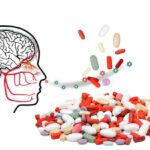List Of Drugs That Cause Memory Loss With Alcohol

Memory loss refers to the inability to recall or remember information or events that were previously stored in the brain. It can range from mild forgetfulness to severe impairment that significantly affects daily functioning and quality of life. Memory loss can be temporary or permanent, and it can result from various factors, including normal aging, medical conditions, lifestyle factors, and certain medications or substances.
Alcohol consumption has long been associated with memory impairment, and its detrimental effects on cognition and overall brain health are widely acknowledged. However, when alcohol is combined with certain drugs, the risks of memory loss and other cognitive impairments can be significantly exacerbated.
In this comprehensive article, we will explore some of the drugs that, when combined with alcohol, can lead to memory loss, as well as delve into the mechanisms underlying this phenomenon and discuss strategies for minimizing the associated risks.
Drugs That Cause Memory Loss With Alcohol
There are several drugs that can cause memory loss with alcohol, they include:
1. Benzodiazepines: Benzodiazepines, a class of drugs commonly prescribed for anxiety, insomnia, and seizure disorders, can intensify the effects of alcohol on memory. Both substances depress the central nervous system, and when used together, they potentiate each other’s sedative properties. The combination can result in a significant impairment of cognitive function, leading to memory loss and blackouts. For example, taking Xanax and alcohol can impair memory formation and retrieval. The combination can lead to blackouts or fragmented recollections of events. Individuals may have difficulty recalling what happened during the period of combined use.
2. Opioids: Opioids, such as prescription painkillers (e.g., oxycodone, hydrocodone) and illicit drugs like heroin, are notorious for their potential to cause respiratory depression and sedation. When combined with alcohol, the sedative effects are magnified, heightening the risk of memory impairment. Additionally, the simultaneous use of opioids and alcohol can increase the likelihood of accidental overdose and respiratory failure, which further compounds the potential for memory loss due to oxygen deprivation.
3. Sleep Medications: Prescription sleep aids, including zolpidem (Ambien) and eszopiclone (Lunesta), are commonly used to treat insomnia. These medications work by enhancing the effects of gamma-aminobutyric acid (GABA), a neurotransmitter that promotes relaxation and sleep. However, when combined with alcohol, the sedative effects can be intensified, leading to excessive drowsiness, confusion, and memory deficits.
4. Antidepressants and Antipsychotics: Certain classes of antidepressants and antipsychotics can interact with alcohol, resulting in an increased risk of memory loss. Drugs such as selective serotonin reuptake inhibitors (SSRIs) and monoamine oxidase inhibitors (MAOIs) can intensify the sedative effects of alcohol, impairing cognitive function and memory formation. Similarly, antipsychotics, particularly those with strong sedative properties, can have additive effects when combined with alcohol, exacerbating memory impairment.
5. Antihistamines: Common over-the-counter antihistamines, such as diphenhydramine (Benadryl), are often used to alleviate allergy symptoms and promote sleep. These medications have a sedative effect that can be further potentiated when combined with alcohol. The combination can lead to increased drowsiness, confusion, and memory difficulties.
Mechanisms of Memory Impairment
The combined effect of alcohol and these drugs on memory can be attributed to several factors. First, both alcohol and these drugs act as central nervous system depressants, slowing down brain activity. This interference with neural processing impairs the formation of new memories and can lead to blackouts or fragmented recollections of events. Second, alcohol and certain drugs affect the levels of neurotransmitters in the brain, particularly GABA and glutamate, further disrupting memory encoding and retrieval processes.
How to Minimize the Combined Effect of Alcohol and Drugs on Memory
Minimizing the combined effect of alcohol and drugs on memory is crucial for maintaining cognitive function and overall well-being. Here are some strategies to consider:
1. Educate Yourself: Learn about the potential interactions between alcohol and the specific medications you are taking. Read the labels, and medication guides, or consult healthcare professionals to understand the risks involved.
2. Follow Prescribing Instructions: Always adhere to the prescribed dosage and usage instructions provided by your healthcare provider. Take medications as directed and avoid exceeding recommended limits. If the prescription advises against alcohol use, strictly abstain from alcohol during the course of treatment.
3. Consult Healthcare Professionals: Speak with your healthcare provider or pharmacist about the potential interactions between alcohol and your medications. They can provide valuable guidance and address any concerns you may have. Be honest about your alcohol consumption habits to ensure accurate advice.
4. Avoid Alcohol Consumption: To minimize the risks associated with memory loss, consider abstaining from alcohol altogether, especially if you are taking medications known to have harmful interactions. Remember that alcohol itself can impair memory, and combining it with drugs can exacerbate the effects.
5. Consider Alternative Medications: If possible, discuss with your healthcare provider the possibility of switching to medications that do not have significant interactions with alcohol. They may be able to prescribe alternative treatments that are compatible with moderate alcohol consumption or have reduced risks of memory impairment.
6. Monitor Your Symptoms: Pay attention to any changes in your memory or cognitive function while taking medications and consuming alcohol. If you notice concerning side effects, discuss them with your healthcare provider promptly. They can evaluate the situation and make adjustments to your treatment plan if necessary.
7. Practice Moderation: If you choose to consume alcohol while taking medications, do so in moderation. Stick to recommended guidelines for low-risk alcohol consumption, such as moderate drinking (up to one drink per day for women and up to two drinks per day for men). Be aware that even moderate alcohol consumption can have some impact on memory and cognition.
8. Be Mindful of Timing: Consider the timing of alcohol consumption concerning your medication schedule. It is generally advisable to separate the intake of alcohol and medications by a significant time gap to reduce the likelihood of interactions. Follow the specific instructions provided by your healthcare provider or pharmacist.
9. Seek Support: If you are struggling with alcohol use or finding it difficult to avoid combining alcohol with your medications, seek support from healthcare professionals or support groups specializing in substance abuse. They can provide guidance, resources, and strategies to help you make healthier choices and manage your medications effectively.
Remember, the impact of alcohol and drugs on memory can vary from person to person, and individual responses may differ. It is essential to prioritize your health, follow professional advice, and make informed decisions to safeguard your cognitive function.
Conclusion
When alcohol is combined with certain drugs, the potential for memory loss and cognitive impairment increases significantly. Benzodiazepines, opioids, sleep medications, antidepressants, antipsychotics, and antihistamines are among the substances that can intensify alcohol’s effect on memory. Understanding the risks associated with these combinations is essential for maintaining brain health and overall well-being. By raising awareness, following prescribing instructions, seeking medical advice, and making informed choices, individuals can minimize the risks and protect their cognitive functions. Remember, it is always better to prioritize your health and well-being over temporary pleasures that may result in long-lasting consequences.





